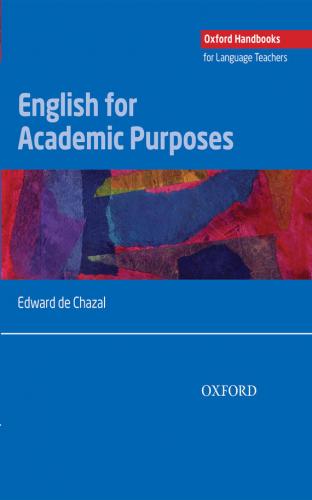Sources: www.wikipedia.org
ACKNOWLEDGEMENTS
First of all, I would like to thank Aisha Walker of the University of Leeds for writing the final chapter, ‘Technologies’, and Liz Austin of the University of Essex for contributing greatly to Chapter 11, Assessment.
I would also like to thank the two readers: John Swales, Professor Emeritus of Linguistics at the University of Michigan, and Lindy Woodrow, Senior Lecturer in TESOL at the University of Sydney, for their extremely helpful and insightful responses to the manuscript.
At Oxford University Press (OUP), I acknowledge a debt of gratitude to Catherine Kneafsey for originally commissioning this book, Keith Layfield for running with it, and Julia Bell for taking it to its final stages of completion. As part of the wider OUP team I would like to thank Shaun Wilden for providing early material on technologies and resources, plus publishers, sales and marketing staff, administration staff, and editors, notably the editor of the book, Andrew Dilger and copy editor Anna Cowper. All have contributed to and supported me and this book in important ways.
At University College London (UCL), where I taught from 2002 to 2011, I would like to thank my former colleagues in the Language Centre (now the Centre for Languages and International Education); also Professor Donald Gillies, who studied under Karl Popper when at the London School of Economics and Political Science, and has kindly given permission for his lecture material on Bacon and Popper to be used in the first section of Chapter 5. In addition, I would like to acknowledge the influence and support of staff and students at other London University colleges at which I have studied, including those at Westfield College (now incorporated into Queen Mary College), the Central School of Speech and Drama, and the Institute of Education – special thanks there to Amos Paran and Catherine Walter (now at the University of Oxford Department of Continuing Education) for guiding me in my early investigations of noun phrases.
Various courses have offered me relevant content and stimulation, notably my MA in Teaching English as a Second or Foreign Language at Bangor, University College of North Wales, particularly my dissertation supervisor Phil Scholfield, now at the University of Essex; and the Certificate in the Advanced Study of Education in English for Specific Purposes led by Mike Scott and an inspiring team including Geoff and Susan Thompson at the University of Liverpool.
I have also learned greatly from my EAP teaching colleagues earlier in my career in the 1990s, notably at Bilkent University in Ankara, under the direction first of Desmond Thomas (now at the University of Essex) and subsequently John O’Dwyer. The Bilkent teaching staff at that time have gone on to pioneer EAP teaching throughout Turkey and beyond. I gained further invaluable experience leading the team which set up the academic military English programme for officers at the Joint Command and Staff College in Kuwait.
I would additionally like to acknowledge the ongoing support and friendship of other independent authors, particularly Fiona Aish, Jo Tomlinson, Sheila Thorn, Sam McCarter, Louis Rogers, and Julie Moore, who kindly gave permission for a small number of glossary items she wrote for Oxford EAP Advanced/C1 to be incorporated into the Glossary in this book.
There are two professional organizations I would like to acknowledge: IATEFL (the International Association of Teachers of English as a Foreign Language) and BALEAP (the global forum for EAP professionals). These two teachers’ associations offer outstanding networking opportunities and inspiration for teachers of English and EAP, particularly through their publications, conferences, and events. A considerable amount of material in this book found its first outing in presentations I have given at IATEFL and BALEAP, which represent excellent opportunities to disseminate new ideas and raise questions.
Many further ideas were encountered in innumerable presentations and training events, and the classroom. For this reason I would like to thank past students, colleagues, presenters, trainers, and audiences in presentations for raising interesting questions and ideas.
Lastly, I thank my family for their enormous patience and understanding, as ever.
ABBREVIATIONS AND ACRONYMS
INTRODUCTION
When I started teaching English as a Foreign Language (EFL) in 1987, the teaching certificate I did in London had a short session on English for specific purposes (ESP), but no mention was made of English for academic purposes (EAP). It probably took a year or two before I ever heard about EAP. In the context of my teaching certificate at International House London, ESP meant business English. Business students, we were told, are motivated, and have interesting lives involving travel. Our trainers also said that in order to teach business English, we would need technical language, and also to be interested in business. My trainee notes, well saved, also reveal that, in ESP, fluency is more important than accuracy, and finally that ‘if you’re not interested in ESP, don’t touch it with a barge pole’.
How far these observations hold true today, if they did indeed hold true then, can remain a matter for discussion. For teachers starting to teach EAP, some of whom will have taught business English, and nearly all of whom will have their own experiences of studying in higher or further education, there are likely to be different concerns: How do I go about teaching EAP? Should I use different techniques and methodologies to those in business and general English contexts? Where can I find good materials? What do my students expect of me? How will I cope with the demands of an intensive pre-sessional programme? Which aspects of language should I prioritize? What can I do to improve my students’ writing and speaking? What exactly is EAP anyway?
This book is written for these teachers, and indeed all teachers of EAP worldwide, and aims to address questions such as these. It introduces and defines the field of EAP and offers many practical
